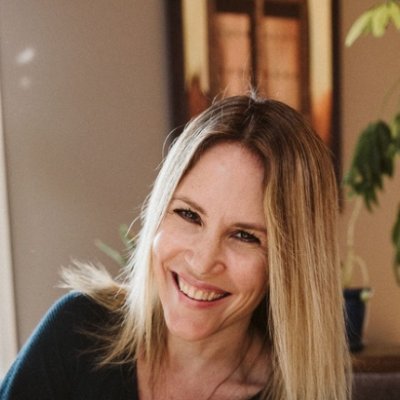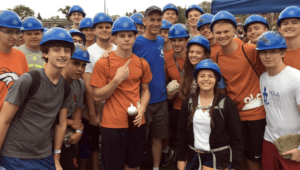Leadership Mindsets for Breakthrough Leaders

We recently had the opportunity to talk with Jeff Petty, founder and director of the Puget Sound Consortium for School Innovation (PSCSI), about breakthrough leadership and innovations in learning for principals and superintendents. The Consortium is an initiative of Big Picture Learning (BPL) and includes an array of interrelated projects to develop a replicable regional learning lab for public school innovation. It partners with public and charter schools/districts on developing new schools and redesigning existing ones, and establishes and supports collaboration among innovating teachers and leaders across district boundaries and charter/non-charter. Jeff is the founder and former principal of Highline Big Picture Schools, part of the BPL network.
The Consortium’s national advisors include Linda Nathan of Boston University’s Institute for Creative Educational Leadership, Robert Riordan, President of HTH Graduate School of Education, and Jay Goyal, co-founder and CEO of Actively Learn, an immersive reading platform. (Many of the national advisors are also part of the Deeper Learning network. Part of Jeff’s intent in establishing the Consortium was to get successful DL network partners pushing each other’s thinking and practice across schools close enough for deep collaboration.) With input from students and colleagues, Jeff and the team of advisors created a list of four core school distinguishers the Consortium would support, drilled down from a much more co list. The distinguishers prioritize engagement as the strongest leverage for lasting academic gains and development of non-cognitive competencies.
They are:
- The Learning is Personal.
- The Learning is Real.
- The Learning is Equitable.
- The Learning is Lasting.
We discussed how these attributes help define the work of schools AND define the work of all learners, including the work of training and developing school principals and superintendents. As part of the Consortium’s work to develop new leadership pathways, Jeff is currently teaching a class titled Equity by Design at the University of Washington’s Danforth Educational Leadership Program for new principals. Jeff shared his insights on best preparing leaders for work in Next-gen, innovative, Deeper Learning schools.
Leadership Mindsets
Jeff outlined specific mindsets and experiences to be nurtured and cultivated in preparing leaders for Deeper Leadership:
1. Strategically and productively break the rules. “The prevailing structure of rules is obviously not working well enough,” Jeff said. “School leaders making real equity breakthroughs have figured out how to innovate and push the systems they are in without getting fired. Emerging leaders need to be exposed to those very different approaches to school design (the innovaTIONS) as well as mentors who are skillful rulebreakers (the innovaTING), so they can develop this mindset. Instead of finding out what the rules are, the leaders we need are guided by a strong vision of what is best for kids.”
2. Move beyond the status quo. Regarding his work with the UW Danforth program, Jeff said, “This design course is informed by a concern that the principal program at Danforth has been overly scaffolded. There’s a module and an assignment and everything is neatly outlined for the learner. In essence, what we’ve been doing with principal training is simply reinforcing the status quo. As a principal candidate, you have to do an internship in the dysfunctional structure with the leader in a dysfunctional structure, which reinforces the approach of our existing schools. We need to teach principals how to design and problem solve in different ways.” In his course Equity by Design, Jeff is working with principal candidates to design real world projects in the region through a design thinking process based on work from Stanford Design School and IDEO. With this course, Jeff added that he wants a parallel practice for principal candidates that mirrors learning for students and staff in the building: “To the greatest extent possible, how can we ensure that adults are learning in the same ways that we want kids to learn?”
3. Make the work personal. In David and Tom Kelley’s book Creative Confidence, the authors write that work and personal life are not always separate. In the toughest work, people know each other really well and they collaborate. Jeff recommends creating a culture that celebrates and supports messy work: “Renew definitions, get outside your building and visit other schools and people. Be open to new ways of doing things better. Keep revisiting the work and your core principals.”
4. Move beyond distributed leadership. Deeper Learning, says Jeff, is “where you as the learner are super invested in the outcome and you are personally involved. Help your staff feel like they are designing the school as it happens. Make sure the adults in your building experience the feelings around Deeper Learning that you aspire to have your students experience.”
5. Shift away from credits towards competencies. Jeff said, “Learning is most powerful when it’s most real. The approach with the design course at UW is that the work that the students do is good to the extent that it identifies a real world problem and solves it in a sustainable way. That outcome is separate from whether the paper was good, or the research was good, whether they completed all the steps of the project, or whether their learning followed any predictable path. Let’s do real work. Let’s do real work well. And if we do that, we will learn how to do real work and do it well.”
To learn more about Deeper Learning, check out:
As a follow-up to these recent papers, we are kicking off a new project on Preparing Leaders for Deeper Learning. We’d love to hear from you: Who are the thought leaders and organizations that are doing great work to design experiences and cultivate mindsets around Preparing Leaders for Deeper Learning? Please comment below and tweet us at @Getting_Smart.




0 Comments
Leave a Comment
Your email address will not be published. All fields are required.